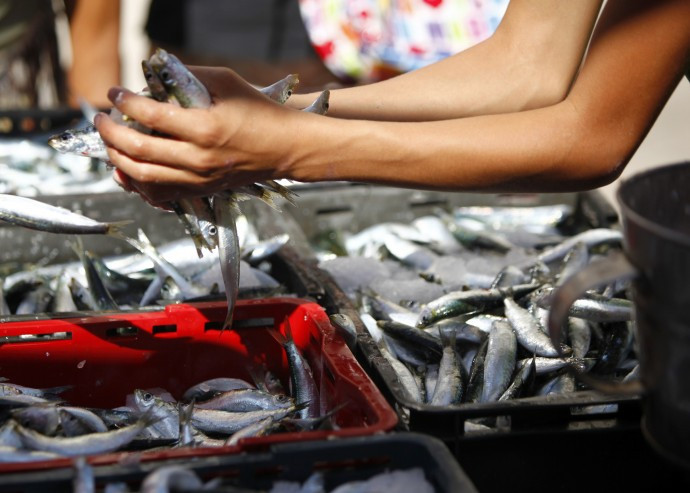Slave labour on the seas of Indonesia brings seafood to US stores and restaurants

Seafood caught in Indonesia by workers who are treated like slaves, ends up in US restaurants, supermarkets and even pet stores, a year-long investigation has revealed.
Investigators from Associated Press (AP) interviewed more than 40 Burmese "slaves" who are forced to work for long hours on the Indonesian tropical island of Benjina, thousands of miles from their home.
The interviewees said they were brought to Indonesia through Thailand, which is where their catch is shipped to before it joins a chain of global commerce.
The slaves said they were paid very little money and forced to work for up to 20 hours a day, they could not eat the fish they caught and were forced by their captains to drink unclean water. Many of them also said they were beaten if they complained or tried to rest.
On one occasion, one of the people interviewed said: "It's torture. When we get beaten, we can't do anything back. ... I think our lives are in the hands of the Lord of Death."
Another one said: "If Americans and Europeans are eating this fish, they should remember us. There must be a mountain of bones under the sea. The bones of the people could be an island, it's that many."
The report said that fish caught by the enslaved men and women supplies some of America's major grocery stores, such as Kroger, Albertsons and Safeway, as well as the US's largest retailer, Wal-Mart and its biggest food distributor, Sysco.
"[Seafood] can find its way into the supply chains of some of the most popular brands of canned pet food, including Fancy Feast, Meow Mix and Iams," the investigation revealed. "It can turn up as calamari at fine dining restaurants, as imitation crab in a California sushi roll or as packages of frozen snapper relabeled with store brands that land on our dinner tables."
AP documented the journey of a single large shipment of slave-caught seafood from the Indonesian village, tracking it by satellite to a Thai harbour. "The tainted seafood mixes in with other fish at a number of sites in Thailand, including processing plants. US Customs records show that several of those Thai factories ship to America," said the report.
They also sell to Europe and Asia, but AP traced shipments to the US, where trade records are public.
Major corporations issued statements condemning enslavement and that they committed to ending forced labour, when they were contacted about their involvement in the supply chain.
AP said that Thailand's biggest seafood company, Thai Union Frozen Products, cut ties with a supplier named in the investigation.
Thai Union said in a statement that if found AP's findings "utterly unacceptable," but refused to indicate which company it cut ties with.
© Copyright IBTimes 2025. All rights reserved.






















